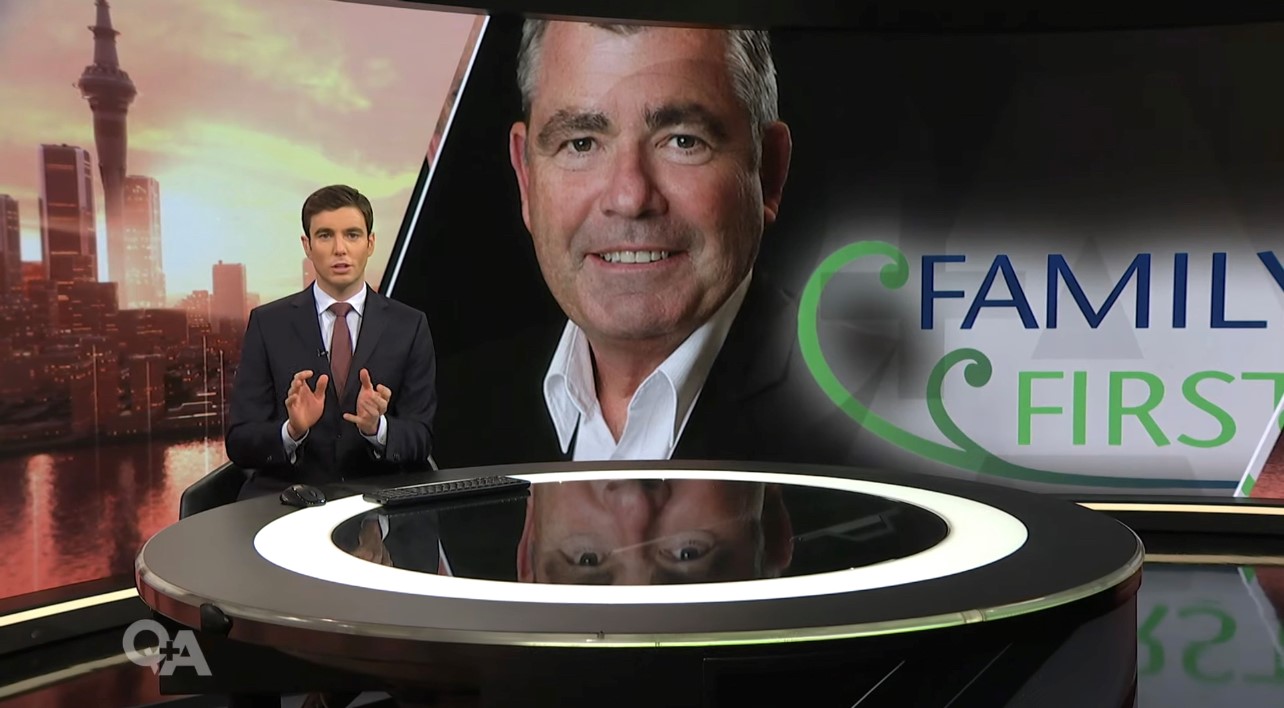Why TVNZ’s Q&A was wrong on Family First v Greenpeace’s ‘research’
In the Q&A interview with Jack Tame this weekend, he made a statement to the effect that Greenpeace’s research had met the standard of education because it had been peer-reviewed. Ours hadn’t. That’s why they got charitable status and we didn’t.
At the time of the interview, I wasn’t sure whether that was correct – so had to answer the question as best I could.
But the assertion is incorrect.
In the decision by the Charities Board to deregister Greenpeace (2018), in para 67-69, it says
The Board considers that most of Greenpeace’s reports can be characterised as “propaganda or cause under the guise of research” as described in Re Collier. Most of the reports do not have an independent and objective starting point. … The reports do not provide balanced, objective discussion of these topics. In almost all reports, research is presented in a way designed to support Greenpeace’s point of view. Greenpeace has not provided evidence that the reports have been peer-reviewed by an appropriately qualified, independent person.
However, they do acknowledge that ONE report has been peer reviewed – Trajectory Analysis of Deep Oil Spill Scenarios in New Zealand report (para 69)
Family First actually had the same comment about one of our reports – the NZIER report (para 110 of the Family First Supreme Court judgement)
The High Court decision 2020 which gave Greenpeace charitable status reaffirms what the Charities Board said – that ONE report had been peer reviewed (para 106, 116) and accepts the view of the Charites Board on the others – “Greenpeace has not provided evidence that the reports have been peer-reviewed by an appropriately qualified, independent person.”
In Family First’s judgement released on Tuesday, the Supreme Court refers to peer reviews – but only of that ONE report from Greenpeace (para 99) but they also acknowledge our NZIER report. (para 110).
So both Family First and Greenpeace have ONE report that the respective courts have accepted as meeting their undefined standard of “peer reviewed”.
The Charities Board argue that the other reports of both Greenpeace and Family First are designed to support our points of view i.e. advocacy.
In my view, Q&A have given misleading information about both the quality of research by both organisations, and the justification for both organisations being treated differently in the courts.
This is where we find the judgement and accompanying media release of the Supreme Court most disturbing:
Family First’s engagement with issues such as abortion, assisted dying, prostitution and censorship were not subsets of its wider purpose of supporting marriage and family. They are free-standing political objects about which there are differing views in society. For such issues, it is not possible for the Court to determine whether the views promoted are publicly beneficial or otherwise charitable. This differs from advocacy for ends like human rights and protection of the environment which Greenpeace held were themselves charitable ends. Family First’s advocacy on the above issues was not ancillary to its expressed purpose of supporting marriage and family…”
This is the key point to understand. The court is saying that the religions of ‘human rights’ (including sexuality and gender) and ‘environmentalism’ are acceptable things to advocate for, but to present and use decades of research proving that family formation and structure matters is unacceptable and apparently discriminatory.
That should concern us all.






